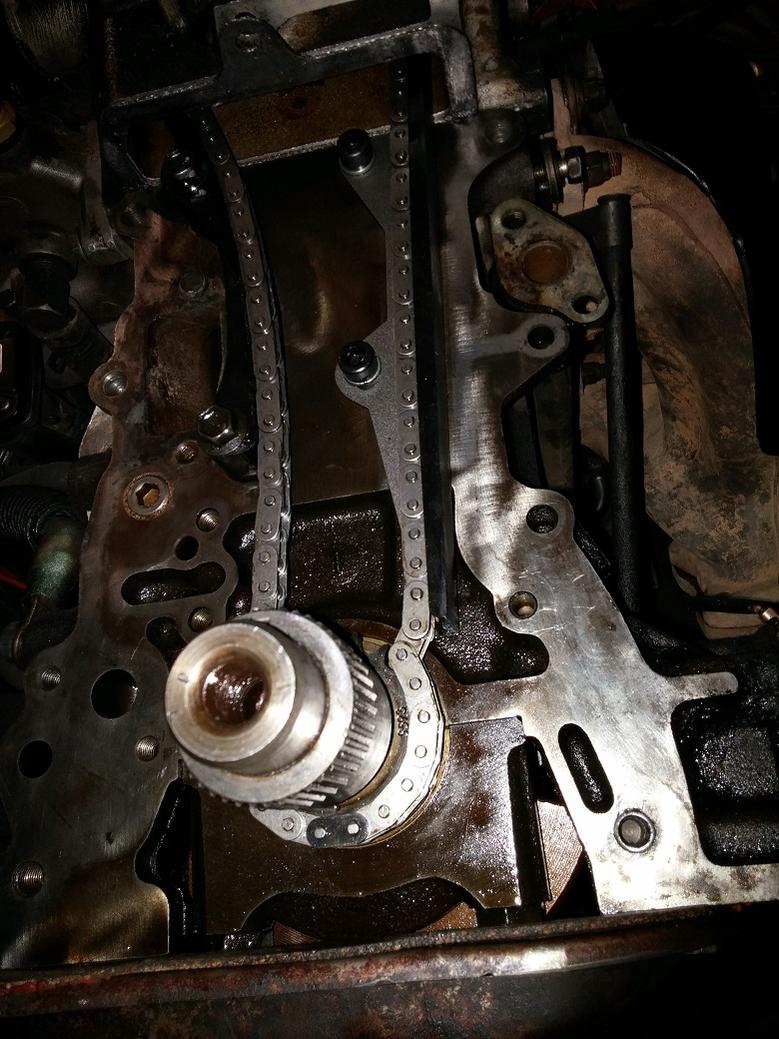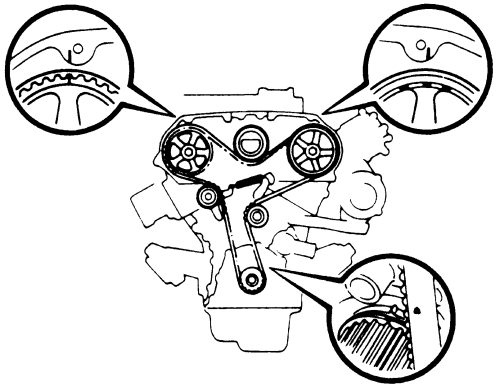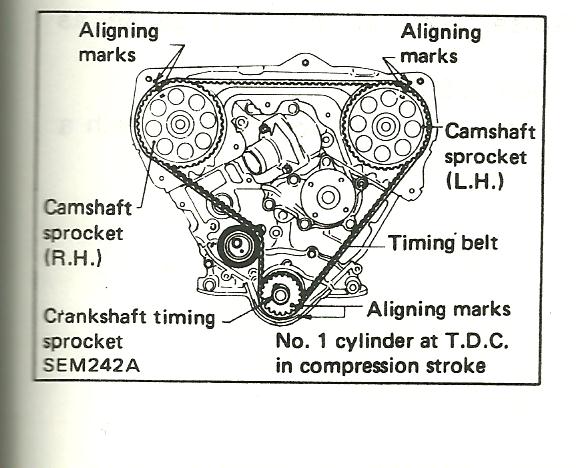The Timing Chain: A Vital Component in the Toyota 4Runner
Related Articles: The Timing Chain: A Vital Component in the Toyota 4Runner
Introduction
With great pleasure, we will explore the intriguing topic related to The Timing Chain: A Vital Component in the Toyota 4Runner. Let’s weave interesting information and offer fresh perspectives to the readers.
Table of Content
The Timing Chain: A Vital Component in the Toyota 4Runner

The Toyota 4Runner, a popular SUV known for its ruggedness and reliability, relies on a timing chain to synchronize the movement of its crankshaft and camshaft. This crucial component ensures the precise timing of the engine’s combustion cycle, directly impacting its performance, efficiency, and longevity. Understanding the timing chain’s function and its importance in the 4Runner’s operation is essential for any owner seeking to maintain their vehicle’s optimal performance.
The Role of the Timing Chain
Within the engine, the timing chain acts as a critical link between the crankshaft, which rotates the pistons, and the camshaft, which controls the opening and closing of the valves. The chain’s precise timing ensures that the valves open and close at the exact moment the pistons reach their respective positions, allowing for proper fuel injection and exhaust expulsion. This coordinated movement is essential for efficient combustion and optimal engine power output.
Advantages of a Timing Chain
Unlike timing belts, which require periodic replacement, timing chains are designed to last the lifetime of the engine. This inherent durability offers several advantages:
- Reduced Maintenance Costs: Eliminating the need for timing belt replacements significantly reduces maintenance costs over the vehicle’s lifespan.
- Increased Reliability: Timing chains are generally more robust than belts, offering a higher level of reliability and reducing the risk of unexpected breakdowns.
- Enhanced Engine Longevity: The absence of a timing belt replacement requirement contributes to the engine’s overall longevity, as it eliminates a potential point of failure.
Understanding the Potential Issues with Timing Chains
While timing chains are renowned for their durability, they are not immune to wear and tear. Over time, the chain can stretch, leading to inaccurate timing and potential engine damage. This stretching can be caused by factors such as:
- Excessive Engine Wear: Excessive engine wear can cause the timing chain to stretch due to increased friction and wear on the chain’s components.
- Improper Maintenance: Neglecting routine oil changes and using low-quality engine oil can accelerate chain wear and contribute to stretching.
- High Engine Stress: Operating the engine under high stress, such as prolonged periods of heavy towing or aggressive driving, can put excessive strain on the timing chain.
Signs of a Failing Timing Chain
Recognizing the signs of a failing timing chain is crucial to prevent potential engine damage. Common symptoms include:
- Engine Noise: A rattling or clicking sound emanating from the engine, particularly at startup, can indicate a stretched or worn timing chain.
- Loss of Power: A noticeable decrease in engine power or acceleration can be a symptom of a timing chain issue.
- Rough Idle: The engine may idle erratically or stall, indicating a mistimed combustion cycle.
- Check Engine Light: A check engine light illuminating, especially accompanied by a specific code related to timing, can signal a problem with the timing chain.
Addressing Timing Chain Issues
If you suspect a timing chain issue, it’s crucial to seek professional diagnosis and repair. Replacing a timing chain is a complex procedure that requires specialized tools and expertise. Ignoring a failing timing chain can lead to catastrophic engine damage, resulting in costly repairs or even engine replacement.
FAQs Regarding Timing Chains in the Toyota 4Runner
Q: How often should the timing chain be replaced in a Toyota 4Runner?
A: Timing chains in Toyota 4Runners are generally designed to last the lifetime of the engine. However, regular maintenance and inspection are crucial to ensure optimal performance and longevity.
Q: What are the costs associated with replacing a timing chain?
A: Timing chain replacement costs vary depending on the specific model year and engine configuration. However, it’s typically a significant investment, ranging from several hundred to thousands of dollars.
Q: Can I drive my 4Runner if I suspect a timing chain issue?
A: It’s not advisable to continue driving your 4Runner with a suspected timing chain problem. Driving with a stretched or failing chain can cause further damage and potentially lead to engine failure.
Tips for Maintaining Your Toyota 4Runner’s Timing Chain
- Regular Oil Changes: Ensure regular oil changes using high-quality engine oil to minimize wear and tear on the timing chain.
- Avoid Aggressive Driving: Avoid excessive acceleration and high-rpm driving, as these can put undue stress on the timing chain.
- Professional Inspections: Have your timing chain inspected by a qualified mechanic during routine maintenance checks.
- Address Engine Noise: If you hear unusual noises from the engine, especially at startup, have it inspected promptly to rule out any timing chain issues.
Conclusion
The timing chain plays a vital role in the smooth and efficient operation of the Toyota 4Runner’s engine. While known for its durability, it’s essential to be aware of potential issues and maintain proper care to ensure the long-term health of your vehicle. By understanding the importance of the timing chain, recognizing its potential problems, and implementing preventative maintenance practices, you can ensure your 4Runner continues to deliver reliable performance for years to come.








Closure
Thus, we hope this article has provided valuable insights into The Timing Chain: A Vital Component in the Toyota 4Runner. We hope you find this article informative and beneficial. See you in our next article!